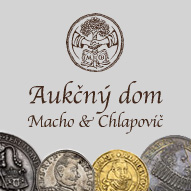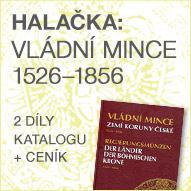In the name of Antonia
Příjem limitů končí:
Neděle 11.5.2014, 12:00:00.
Zbývající čas: Příjem limitů byl ukončen
In the name of Antonia, wife of Nero Claudius Drusus Denarius circa 41-45, AR 18mm., 3.71g. ANTONIA – AVGVSTA Draped bust right, wearing crown of barley ears. Rev. SACERDOS – DIVI – AVGVSTI Two long ignited torches linked by ribbon. C 5. BMC Claudius 114. RIC Claudius 68. CBN –.
Very rare. Lovely toned and extremely fine.
We are told by Suetonius (Gaius 15) that Caligula compelled the senate to grant Antonia every honour possessed by Livia. However, the same historian (Claudius 11) tells us she refused what Caligula proposed and that only after her death was she hailed Augusta by Claudius. (It is worth noting that an inscription from Corinth indicates she was hailed Augusta by Caligula.). Antonias portrait on the obverse of her two precious metal coinages represent her in the guise of Ceres (Demeter), for she wears a crown of grain ears. The reverse type of this denarius is inscribed SACERDOS DIVI AVGVSTI, and depicts two alight torches linked by a ribbon or garland. The inscription is a direct reference to Claudius – the issuer of the coin – as the priest of the cult of Divus Augustus. The meaning of the two torches is less clear. Perhaps they signify Livia and Antonia as the only two women, both deceased, who held the title Augusta. Alternatively, they may represent the rites of the Augustan priesthood, of which Antonia was named priestess under Caligula, and Claudius since the accession of Tiberius. Equally likely is the possibility of the explanation involving the Ceres-Demeter connection already noted for the obverse. Demeter is usually depicted holding a torch, which illuminated her visits to the underworld. The worship of Ceres-Demeter in Rome involved annual celebrations (the Cerealia) and games (the Ludi Cereales). The cult was ancient and important, and was inextricably tied to the Eleusinian Mysteries. Claudius interest in its occult rituals must rituals must have been deep since Suetonius (Claudius 25) tells us he tried to relocate the Eleusinian Mysteries from Attica to Rome.




